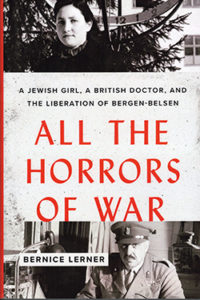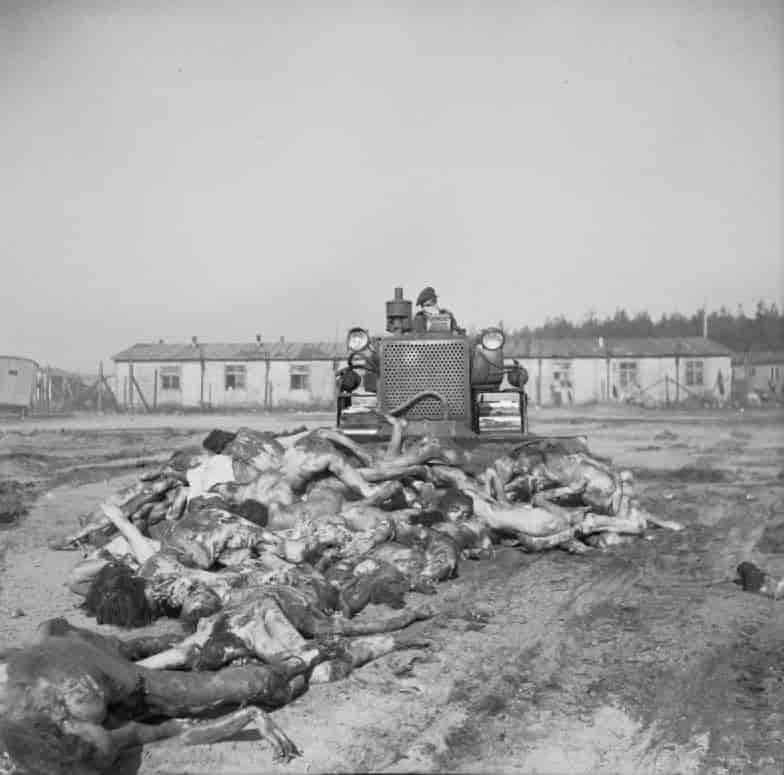 This is an academic work, yet a very personal one for Bernice Lerner of Boston University’s Center for Character and Social Responsibility. The Jewish girl referred to in the subtitle was author Lerner’s mother, Rachel Genuth. Her Romanian hometown of Seghet was annexed by Hungary, then an ally of Nazi Germany. Teenaged Genuth and the town’s other Jews were rounded up and sent to Auschwitz.
This is an academic work, yet a very personal one for Bernice Lerner of Boston University’s Center for Character and Social Responsibility. The Jewish girl referred to in the subtitle was author Lerner’s mother, Rachel Genuth. Her Romanian hometown of Seghet was annexed by Hungary, then an ally of Nazi Germany. Teenaged Genuth and the town’s other Jews were rounded up and sent to Auschwitz.
For many members of Genuth’s family, the gas chambers at Auschwitz were their last conscious stop. Chance, however, sent Genuth from Auschwitz to jobs in the Nazis’ factory system until she was forced marched to Bergen-Belsen near the end of World War II.
Juxtaposed with her mother’s experiences as a 15-year-old girl were those of British Brigadier Hugh Llewelyn Glyn Hughes, who was in charge of providing medical treatment for wounded British soldiers from the time of the Normandy invasion in June 1944 to the liberation of Bergen-Belsen in April 1945.
Once British forces liberated the Nazi-run concentration camp, it was Hughes’ job to organize the burial of thousands of bodies and to set up a triage system for the former concentration camp inmates who were dying by the many hundreds every day from starvation and disease.
In the initial chapters of this scholarly work, Hughes’ progress through Europe and the challenges he faced establishing and running a system of mobile hospitals are carefully traced by Lerner. While telling the story of the great logistical challenges Hughes overcame to provide medical assistance and healing to British forces as they battled through France, Belgium, Netherlands, and Germany, Lerner interposed at various stages of the war the course that her mother’s life meanwhile was taking as an imprisoned slave laborer.
Eventually the two stories come together at Bergen-Belsen. Although there is no record of the two ever personally meeting, Lerner probably would not have come into the world if the talented Hughes had not restored order and healing to Bergen-Belsen. Exhausted, starved, dehydrated, stricken, and unable to move, Genuth surely would have perished with so many thousands of other Jewish prisoners had not Hughes implemented a massive sanitation, triage, feeding, and hospitalization program in which at least some of the stricken inmates could be nursed back to health. Genuth, who later married fellow Survivor Sidney Mermelstein, never would have had the chance to become a bride nor Lerner’s mother were it not for Hughes’ laudable logistical and medical competence.
One can well appreciate the diligence this scholar put into her research, combining the stories her Survivor mother told her with documentation that took 50 pages of this book just to enumerate.
It is both a story well told and one that needed to be told.
All the Horrors of War: A Jewish Girl, a British Doctor, and the Liberation of Bergen-Belsen by Bernice Lerner; Baltimore: Johns Hopkins University Press © 2020; ISBN 9781421-437705; 264 pages including acknowledgments; end notes, and index.
Republished from San Diego Jewish World


























